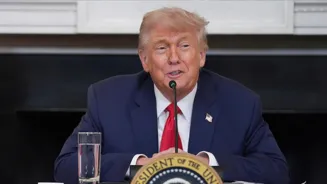Several national postal operators worldwide have temporarily suspended certain mail services to the United States. The move comes in response to the US
ending its longstanding de minimis tariff exemption for imported packages worth $800 or less. While the Biden administration made no change, this change comes under an executive order signed by President Donald Trump, who cited the fight against illegal drug shipments as a key motive. However, global postal services say unclear implementation details and tight timelines have forced them to pause services. PostEurop and several national carriers have expressed concern over the lack of detailed instructions from US Customs and Border Protection (CBP). Key technical processes were only shared on August 15, giving postal services less than two weeks to adjust.
Countries Suspending Mail Services to the US
As the August 29 implementation deadline approaches, multiple countries have announced full or partial suspensions of mail deliveries containing goods to the US:
- Germany: Deutsche Post and DHL Parcel Germany halted all business customer parcels as of Saturday. DHL Express remains unaffected.
- France: La Poste warned of a potential full suspension unless a solution is reached before the new rules take effect.
- United Kingdom: Royal Mail plans a brief service pause next week before introducing a compliant system.
- Belgium: bpost suspended merchandise shipments beginning Saturday. Only letters, documents, and exempt items under $100 will continue.
- Spain: Correos will no longer accept packages worth $800 or less starting Monday.
- India: India Post suspended mail services for goods as of Monday. Letters, documents, and gifts under $100 are still permitted.
- PostEurop (covering 53 European postal operators): Warned that many of its members are pausing services due to lack of guidance and limited preparation time.
Impact On Customers
For customers in the US, the suspension of services means delayed deliveries, fewer shipping options, and new fees on low-value parcels. Previously, packages under $800 could enter duty-free. Under the new rules parcels from countries with tariffs under 15% will be charged an additional $80, countries with 16–25% US tariffs will face an extra $160 per package, and tariffs over 25% will trigger a $200 surcharge.
In addition, senders must prepay duties before shipping to the US, significantly changing the logistics and cost for international e-commerce. While letters, documents, and gifts under $100 remain exempt, even these will face stricter scrutiny to prevent misuse.















